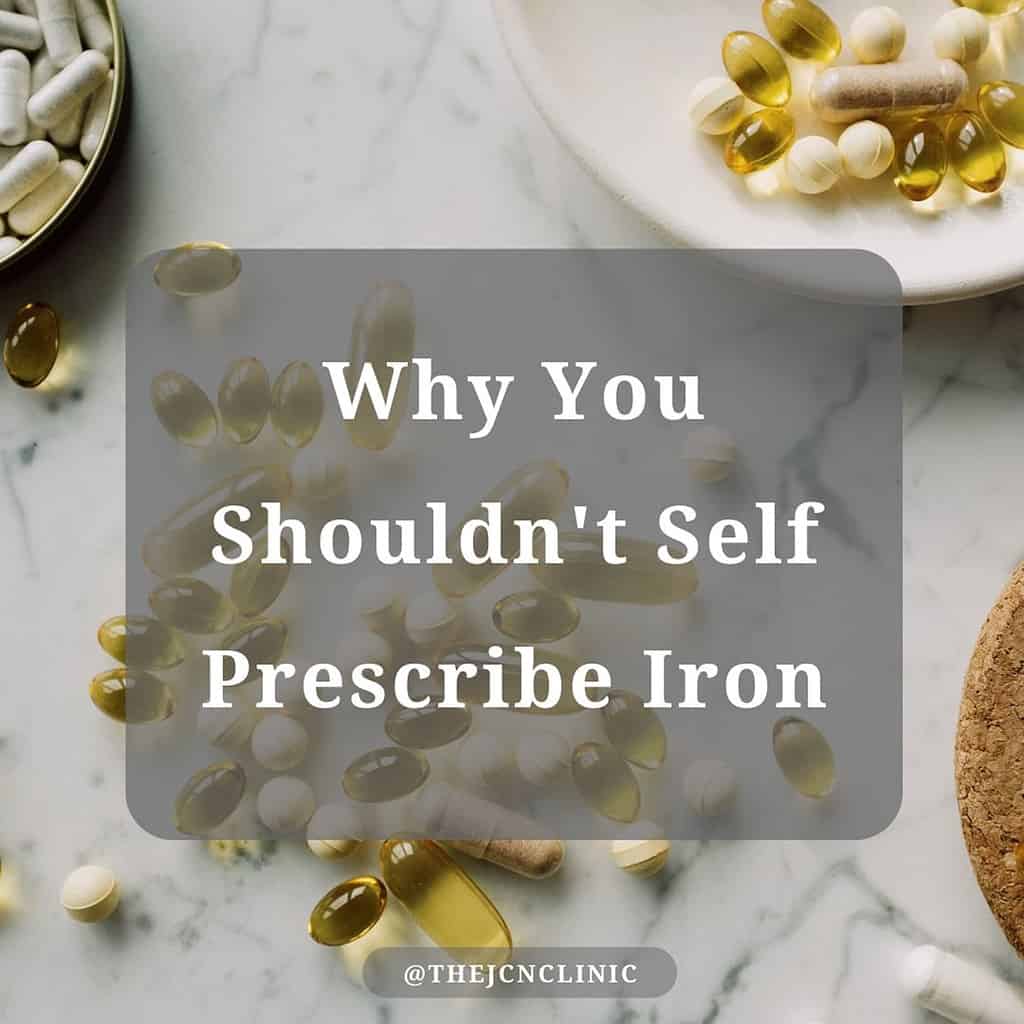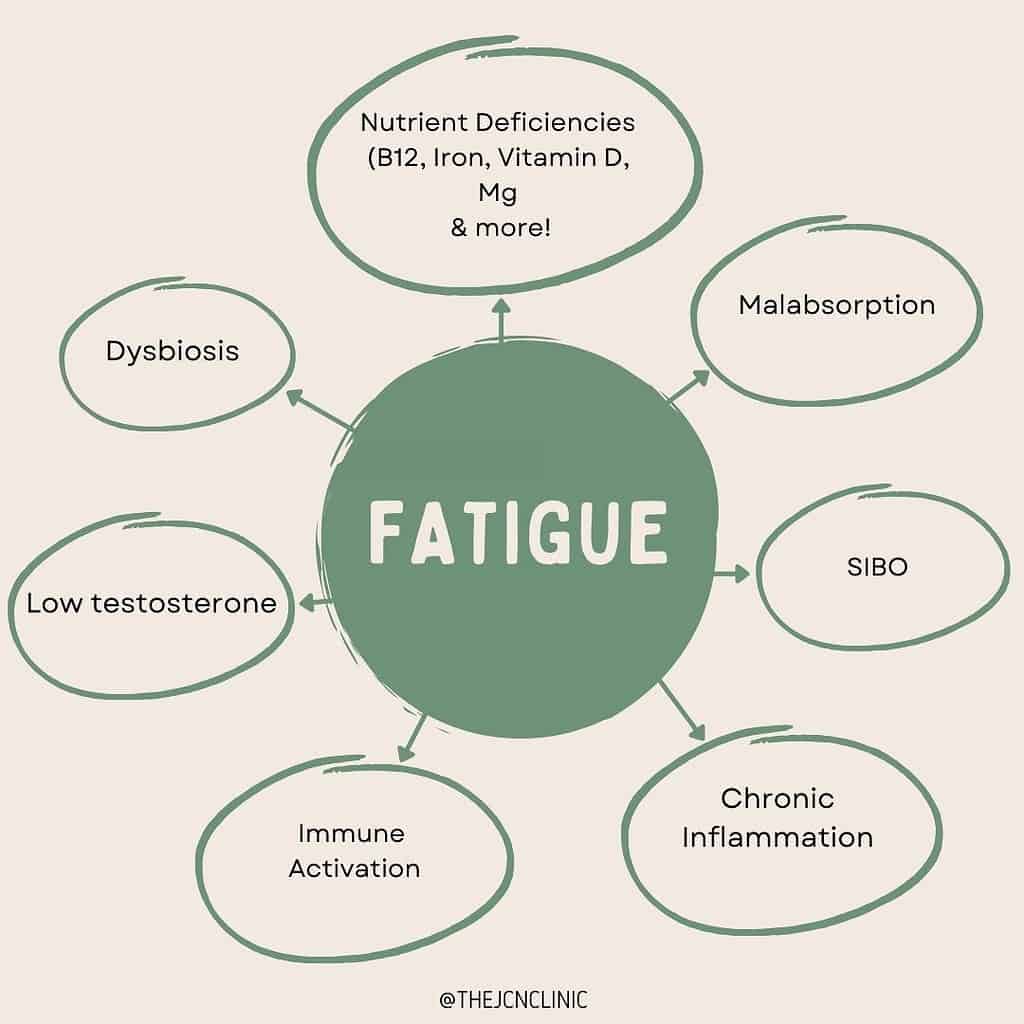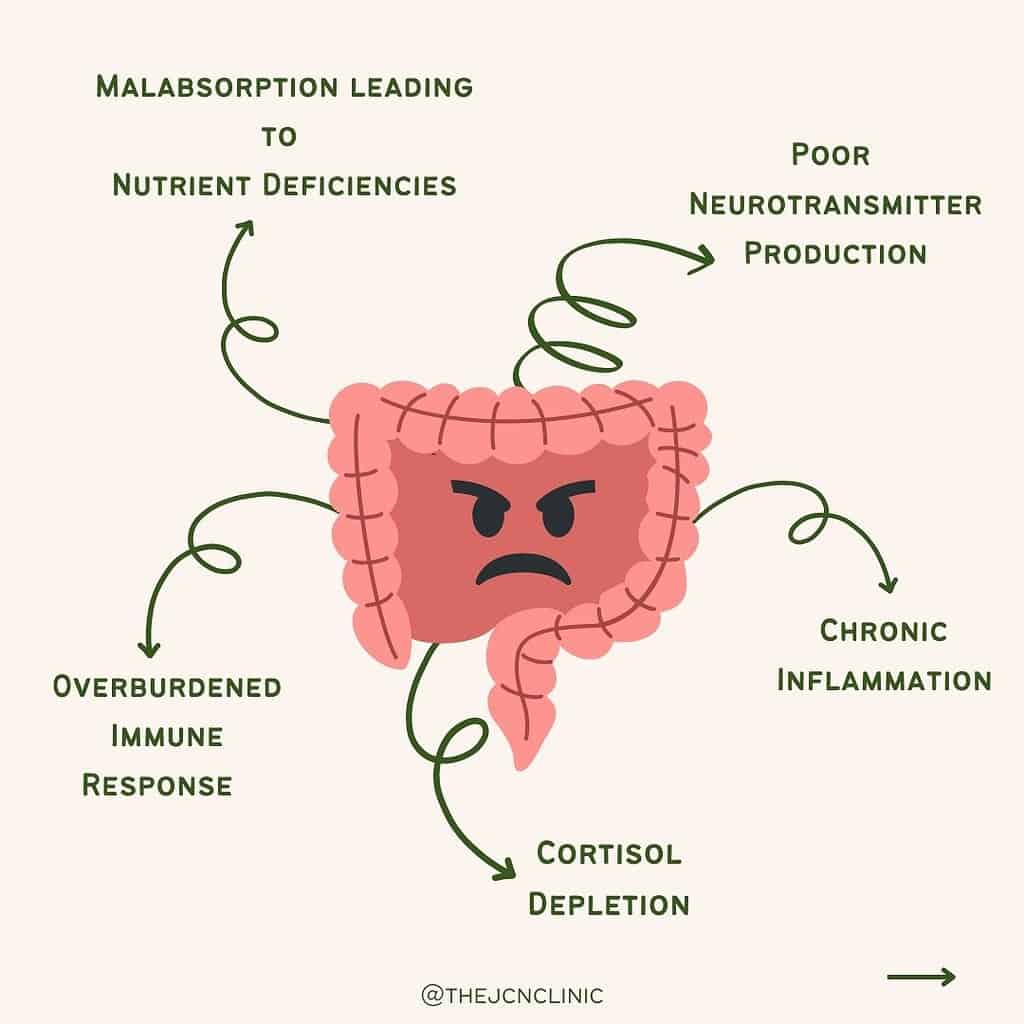
Low iron is just one of many causes of fatigue. A pattern we see a lot at The JCN Clinic is women self prescribing iron when they feel run down, tired and fatigued. If low iron is the root cause of fatigue then the right iron supplement can be fabulous, however there are without question reasons why you shouldn’t self prescribe iron off the cuff.
However, before we dive in further, it is important to acknowledge the frequency of iron deficiency. As this BMJ 2022 Journal points out “The WHO has recognised iron deficiency anaemia (IDA) as the most common nutritional deficiency in the world, with 30% of the population being affected with this condition. Although the most common causes of IDA are gastrointestinal bleeding and menstruation in women, decreased dietary iron and decreased iron absorption are also culpable causes.” (1)
With this large percentage of iron deficiency world wide, let’s look at why self prescribing iron can still be troublesome.
Why is this self prescribing iron an issue??
Iron is not always the reason you are fatigued! In fact, fatigue can be driven by multiple factors and have nothing to do with iron directly. Treating fatigue is multi-systemic, as there are generally many contributing factors. At The JCN Clinic our goal is understand the core driver of your fatigue whilst addressing these layers along the way. As you can see in the diagram below, there are many avenues to address! Once we investigate thoroughly, we can start to identify the true cause of fatigue.

What this flow chart image shows us is that there are many avenues that result in fatigue:
- Nutrient deficiencies (B12, Iron, Vitamin D, Mg and more!)
- Malabsorption
- Dysbiosis
- SIBO
- Immune Activation
- Chronic Inflammation
- Low Testosterone (alongside low cortisol)
Even though this flow diagram shows a simple causation line between fatigue and ‘driver’, what is important to appreciate is that each of these ‘drivers’ can influence each other. For instance, with immune activation comes chronic inflammation. With SIBO and/or dysbiosis often comes malabsorption and therefore potential iron deficiency and/or B12 deficiency + or – other nutrients. It is a complex web!
In fact, one of the strongest causations we see at The JCN Clinic for fatigue is underlying chronic gut issues as the below image highlights. The burden of poor gut health has a direct and indirect flow onto many areas that can commonly affect your energy production and mood.

is it dangerous to take iron without testing?
The complexities of fatigue highlighted here therefore exemplify why taking iron when it’s not needed is not addressing the real reason of your fatigue. It’s ultimately a waste of your money, but more importantly an overload of iron can be problematic leading to its own cascade of health issues.
Our body actually has it’s own amazing regulatory feedback system for controlling iron levels. However, we do not have mechanisms to excrete excess iron. Generally the way we lower iron levels would be through reducing our storage pool (ferritin) by a diet low in iron and/or through blood loss (commonly menstruation) meaning the iron feedback loop would tell us to liberate more iron from our storage.
Once our storage is overwhelmed however we run into problems. Our iron transporter systems are overloaded and instead of being able to efficiently deliver iron for storage, they will off load elsewhere creating free iron deposits in tissue. Ultimately this can lead to a build up of inflammation and potentially damage to organs if not treated accordingly. (2) You may have heard of Hemochromatosis? This is an hereditary condition where individuals store too much iron. This can be another way of simplifying why iron overload can be damaging to your health.
So… what should we do if we suspect low iron?
TEST!
Ask your nutritionist, naturopath or health professional for:
- Iron Studies – this should include serum iron, transferrin, transferrin saturation and ferritin
- RBC – This will include a breakdown of your red blood cells and Haemoglobin
- B12
- CRP & ESR – These are inflammatory markers that if raised can influence your ferritin within your iron studies, so we need to rule out any ‘untrue’ readings
When we run comprehensive blood work we can then be confident we have the correct data to treat low iron if it is present. Iron levels should always be considered in context to overall red blood cell parameters and inflammatory markers, as inflammation can mask iron deficiency. Furthermore, understanding where B12 is at in relation to all these blood markers is also paramount as fatigue can also be driven by a deficiency of this vitamin.
Once we know we are confidently dealing with low iron we can treat accordingly. Low iron is indeed an issue for many women, but let’s make sure we are taking our iron supplements only if needed and in the right dose for our individual needs.
**This post if for educational purposes only. Not intended to diagnose or treat a condition**
Need personalised nutrition advice catered to your needs?
If you are after personalised nutrition advice and dietary planning individualised to your health and dietary needs then contact us at The JCN Clinic with your enquiry. We are always happy to answer any questions you have!
Jessica Cox is a qualified practicing Nutritionist with a Bachelor Health Science (Nutrition) and over 15 years of clinical experience. She is the founder and director JCN Clinic, published author and established recipe developer. Jessica is well respected within health and wellness space for her no fad approach and use of evidence-based nutrition.





